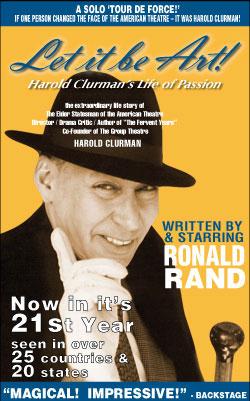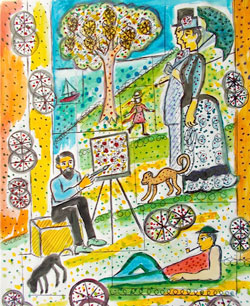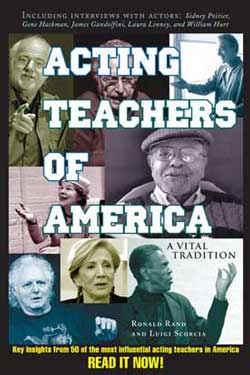Earl “Peanutt” Montgomery
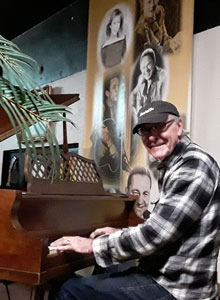 Songwriter, musician and Baptist Minister Montgomery is probably best known as a songwriter and wrote or co-wrote numerous songs including "What's Your Mama's Name Child," "We're Gonna Hold On," "One of These Days" and "Loving You Could Never Be Better." He has been one of Nashville’s top songwriters and session players for many years. As a studio musician, he recorded with Arthur Alexander, Jimmy Hughes, The Tams and Tommy Roe, Griffin said. He has toured with George Jones, Tammy Wynette, Red Foley, Michael Landon, Cowboy Copas and Patsy Cline. Mr. Montgomery began his career as the lead and rhythm guitarist at FAME Studios in Muscle Shoals, Alabama, staff bass player at the Grand Old Opry, playing with many artists including Bob Dylan, Etta James and Patsy Cline. George Jones recorded 73 songs written by Mr. Montgomery, including 31 songs for duets with Tammy Wynette, including their No. 1 hit duet, “We're Gonna Hold On.” Dolly Parton, Tanya Tucker, Emmylou Harris, Barbara Mandrell, Tanya Tucker, Elvis Costello, Hank Williams, Jr., Merle Haggard also recorded Mr. Montgomery’s songs. In 1976, Mr. Montgomery was called to preach, and in 1980, he became the pastor of Oakwood Baptist Church in Sheffield, Alabama. He and his wife, Charlene, began writing gospel music including "Let's All Go Down to the River" and "There's a Man Walking on the Water." Mr. Montgomery received the Arthur Alexander Songwriter’s Award by the Alabama Music Hall of Fame, and the Alabama Music Hall of Fame's Music Creator's Award. He was also nominated for a Grammy Award for "We're Gonna Hold On." Mr. Montgomery and his wife currently own and operate Sweetwater Recording Studio, Mister Magic Music Publishing Company, and Earl “Peanutt” Montgomery Music Museum in Sheffield, Alabama.
Songwriter, musician and Baptist Minister Montgomery is probably best known as a songwriter and wrote or co-wrote numerous songs including "What's Your Mama's Name Child," "We're Gonna Hold On," "One of These Days" and "Loving You Could Never Be Better." He has been one of Nashville’s top songwriters and session players for many years. As a studio musician, he recorded with Arthur Alexander, Jimmy Hughes, The Tams and Tommy Roe, Griffin said. He has toured with George Jones, Tammy Wynette, Red Foley, Michael Landon, Cowboy Copas and Patsy Cline. Mr. Montgomery began his career as the lead and rhythm guitarist at FAME Studios in Muscle Shoals, Alabama, staff bass player at the Grand Old Opry, playing with many artists including Bob Dylan, Etta James and Patsy Cline. George Jones recorded 73 songs written by Mr. Montgomery, including 31 songs for duets with Tammy Wynette, including their No. 1 hit duet, “We're Gonna Hold On.” Dolly Parton, Tanya Tucker, Emmylou Harris, Barbara Mandrell, Tanya Tucker, Elvis Costello, Hank Williams, Jr., Merle Haggard also recorded Mr. Montgomery’s songs. In 1976, Mr. Montgomery was called to preach, and in 1980, he became the pastor of Oakwood Baptist Church in Sheffield, Alabama. He and his wife, Charlene, began writing gospel music including "Let's All Go Down to the River" and "There's a Man Walking on the Water." Mr. Montgomery received the Arthur Alexander Songwriter’s Award by the Alabama Music Hall of Fame, and the Alabama Music Hall of Fame's Music Creator's Award. He was also nominated for a Grammy Award for "We're Gonna Hold On." Mr. Montgomery and his wife currently own and operate Sweetwater Recording Studio, Mister Magic Music Publishing Company, and Earl “Peanutt” Montgomery Music Museum in Sheffield, Alabama.
Did you hear a lot of music growing up?
Poster from “The Night Owls” performing at Big Saturnday Night Dance in the 1950’s with Peanutt Montgomery, Ronnie English, Junior Lowe, Glen Rickard, Charles Springer and Donnie Culver – all for 75 cents!
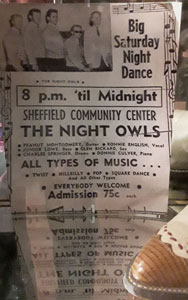 My parents were always playing music, cakewalks and little dances. They lived close Hollingsworth in Tennessee. My Dad was a sharecropper out in the country. He was in born nineteen and one, my Mom in nineteen and two, and they got married in 1917. My Dad was sixteen years old and my Mom was fifteen, and they had nine children. There were five boys and four girls.
My parents were always playing music, cakewalks and little dances. They lived close Hollingsworth in Tennessee. My Dad was a sharecropper out in the country. He was in born nineteen and one, my Mom in nineteen and two, and they got married in 1917. My Dad was sixteen years old and my Mom was fifteen, and they had nine children. There were five boys and four girls.
Where do you think your gift of writing songs might have come from?
My Dad and Mom were musicians. My Mom played guitar, scratch style, with her one finger, and my Dad played fiddle. My Dad taught shake music, hymnals. They were Methodist people. He didn’t teach professionally, but he would go around teaching music and he would also teach Sunday Bible school. He taught me how to play music. I learned to play guitar when I was six. My Dad paid six dollars for a “Gene Autry” guitar.
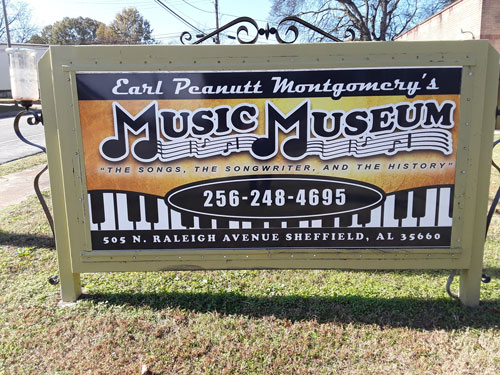
Melba Montgomery, she’s my younger sister. She was a successful country singer with many hits, and she was one of the duet partners with George Jones in the 1960’s. My oldest brother played with Hank Williams. Monty was a vocalist. Carl, my youngest brother was a songwriter who co-wrote the hit, “Six Days on the Road.”
I never did learn to write and read a note. I only know an “f” note on a guitar, but I compiled a method of a song. I don’t read charts and numbered charts like you find in a recording studio. But I can read what the beats are. I learned a lot from working on albums and recordings, always having a pencil and a piece of paper with me.
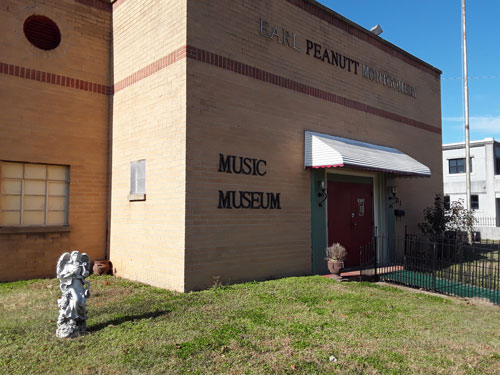
“Peanutt” Montgomery’s Music Museum, Sheffield, Alabama
I went to college, and I had to take a subject, so I took music. They had a lot of trouble teaching me music. I told them I had written Number One songs, played in bands, and I was on the staff of the Grand Old Opry for two years.
So, here I am in college, and they said I should teach the method of how to write songs. I ended up showing them how to write; that’s how I got my degree. I actually wrote a lot of songs in my head.
One of the biggest songs I had, “One of These Days,” I wrote it in mind first, and never put it down on paper until we got to Nashville.
That’s the way I wrote songs. The ideas would come to my mind. Sometimes I would get hung up deep in a song, and I’d get to a friend’s house, and they’d make some music and I’d get the right answer I was looking for. It’s a different approach.
How would you describe the affect music can have on the soul?
“Peanutt” Montgomery with Rick Hall, founder of FAME Studios, Muscle Shoals, Alabama
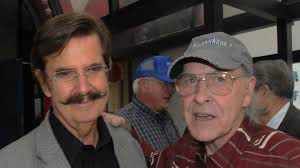 Sometimes I think those who would come to hear me preach would rather hear me singing more than preaching. It means a lot for the soul to hear a gospel song. My wife would sing, and I’d minister.
Sometimes I think those who would come to hear me preach would rather hear me singing more than preaching. It means a lot for the soul to hear a gospel song. My wife would sing, and I’d minister.
I think songs give hope to people. If you’re in a bad time, music will be there for you. If you don’t like life, music can help make you go the other way. I do think songs teach people a lot.
That why we have to be careful about the words of a song; they can change your way of thinking, change your lifestyle. Maybe even change you completely from what you might have learned.
Music is a universal language. I might not speak Spanish but if I do my guitar right, I can speak to a foreign audience through my guitar. I’ve played on tour in Germany, Austria, used to do a lot of USO shows. One time after we played in the Caribbean, we had dinner with a king on the Turks and Caicos island.
When did you pick up your first guitar?
I knew I was going to play music. Music is my life, even though I’m a minister, and He had put His hands on me. My Mom and Dad had me learning the piano real young, and then I took up the guitar. They couldn’t barely get me to go to school.
My Mother told my aunt one time I wouldn’t amount to anything because all he wants to do is play his guitar. She told me, “He will amount to something. He’s smart.” Now my brother, he could write songs and poems early on. I told my Mama, “I think I can write a song.”
So, I sat down and started banging on the old upright piano. And I wrote her a song about a goat, and a house that caught fire. The mayor’s son was trapped in a room and the goat butted down the door, and the goat saved the mayor’s son, and after I wrote the song, everyone laughed about it. I never did get it recorded.
When I was about twelve or thirteen in 1956, a man named Slim Willie wrote “Don’t Let the Stars Get in Your Eyes,” and I helped him and a friend of his, Scottie Underwood, and we ended up writing about three songs.
Now my sister Melba and I, we started in the music business back in ‘57 and we were still in grade school, and we had a little band. I played guitar. Speedy McNutt, he had a radio program on Saturdays on WJOI radio station in Florence, Alabama. And he heard us play and liked us, what my sister and I were playing, and he said if your parents would let you, he wanted to have us on his program on the radio. My Mom said it would be okay.
So, he came and got us and took us down to the radio station. It was the first time we played on the radio locally. We did that for a while. Later, we tried out for a chance to go and play at the Grand Ole Opry in the Pet Milk contest, and we won and ended going to the Opry; that’s how we got started professionally.
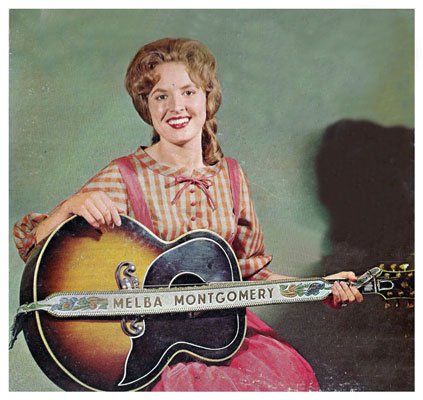
Melba Montgomery, songwriter, recorded duets with George Jones, “Peanutt” Montgomery’s sister
After I started writing songs, I think one song got better than the next. Growing up, we had a lot of Bluegrass in our family. We played Bluegrass, Country and Hillbilly when I was young.
I started playing Rock n’ Roll when Elvis Presley came on the scene, copying him. One of my mentors was Chuck Berry. His rhythm was probably one of the most copied, his position of doing the “Boogie.” I learned to pick ‘Chet Atkins style’ with my fingers because of Scotty Moore who played with Elvis.
Arthur Alexander wrote a love song called “Sally Sue Brown” in ’59, and he recorded it at Tom Stafford's SPAR Music above the old City Drug Store. That’s where we all started in Sheffield. There was a little studio up there with potato sacks and egg cartons on the walls. Donnie Fritts, was there, Spooner Oldham, Terry Thompson, Billy Sherrill. Well, one song we recorded was “Sally Sue Brown,” and Sam Phillips and Judd Phillips cut it. Later it was recorded by Bob Dylan, and now Elvis Costello recorded it. Sam had discovered Elvis, Johnny Cash, Jerry Lee Lewis, Roy Orbison, and Charlie Rich. He had moved to Memphis.
And then I wrote a song with my brother and Earl Green, “Our Song of Love,” was recorded with Porter Wagoner, and he was on RCA. We recorded it out of the Drug Store. That was how we all got rolling and ended up at FAME Studios with Rick Hall. I was part of the first rhythm section: Norbert Putnam, Jerry Carrigan, David Briggs, Junior Lowe, and Terry Thompson. I played lead with a six string Danelectro bass guitar.
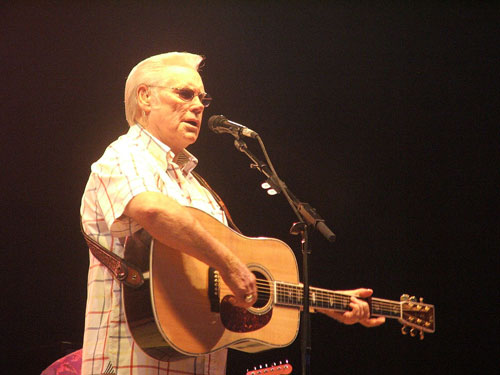
George Jones
At FAME, I played all sorts of music, some blues, some gospel, country, some modern music. I was never a fantastic player, but when I played I could improvise, and imagine things and come up with different chords, melodies or an original self-made melody or arrangement.
Y’know, you can have a song like a Hank Williams song which is original, and then you can have a song the way Fred Rose wrote a song with Roy Acuff, and you know, Rose helped Hank Williams write those songs. Hank, he’s the granddaddy of what we call “country music.”
When I first began recording, I recorded on “wire,” on a one-track recorder, which had a little wire. Now when we all went to Nashville, I played the upright bass, and we all played in different bands. I become one of the bass players at the Grand Old Opry, and played with them all, backing up Patsy Cline, Bill Monroe, Ernest Tubb, Tex Ritter, a lot of others.
Is there a way in for you when you begin writing a song?
I get it from a lot of things. When someone might say a phrase or seeing something someone does. Sometimes it just comes from something I hear about or something I imagine. Sometimes I see it all laid out in my mind. I taught songwriting for many years, and explain how to, but I don’t know how to write a song. I just know I can.
One of those special artists who recorded your songs was Bob Dylan.
He’s still rooted in the human man. He loves people. He stands for their rights. He is right about the human being. But I never met Dylan or Elvis. Dylan did five of my songs, and the way he did them, spoke to me.
I think you first met George Jones in the early 1960’s –
In 1962, when I was living in Florence with my parents. Back around 1959, I went into a little café close to where we are here in Sheffield. And I loved putting fifty cents into a juke box. You could play five songs for a quarter.
And the first song I heard when I’m sitting there was a new song by George Jones. I didn’t know what it was, but it felt like some wind had just come down from high above. I listened to it, and I thought: “That guy can sing.” I had never heard of him before, but I thought: “I’d like to write a song for him. I’m going to write a song for him.” I told my music buddies I heard a song by a feller named George Jones.
Now, my sister Melba, she later went to work with the Smokey Mountain Boys and Roy Acuff. In 1961, George Jones heard her sing on an album. Melba sings phrases like I do, she has a gift that just can’t be taught, and George heard her and got in touch with her. He flew her from Nashville to Dallas so they could record together.
That was the first time I met George Jones, late 1961. I went to her session and I pitched a song to George. It was a gospel song, “Give Me Just One More Day,” and he wound up recording it; that was the beginning.
I did what I set out to do. One of the songs I wrote for George Jones later, was about a boy who comes from a poor family and comes to school with dirt on his collar. He winds up falling in love with the mayor’s daughter, rescuing the daughter and becoming a hero. I wrote seventy-three songs which he recorded, and thirty-one for Tammy Wynette.
Of course, among those who have recorded your songs include Emmylou Harris singing “One of These Days.” How did “One of These Days” first come to you?
Well, I got a phone call one day and the publisher told me you’re not turning in enough songs, so I picked up my guitar. I was living in Florence, Alabama at the time, and I went down to write in the basement. I sat on the first and second step. I started strumming and I wrote it in my mind, every bit of it, sitting on the steps. I got a call that weekend, and George was going to be recording, and he promised me he’d do one of my songs.
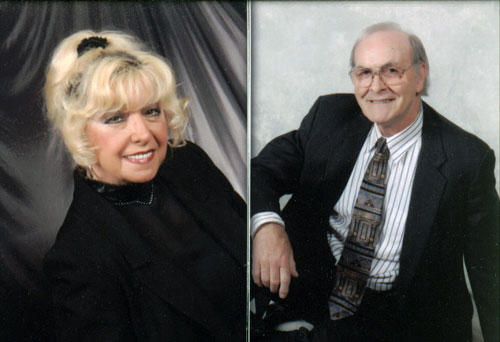
Charlene and Earl “Peanutt” Montgomery
He wanted me to spend the night with him over at the East End Holiday Inn Motel. So, I sang him the song, and he said, “I want to start with that in the morning.” I didn’t write it down yet. I always carry a long legal pad which I do my song notations on. And all the writers, we were all sitting there in the studio.
So, I was sitting there, and George says: “Peannut, bring me the lyrics of that song from last night.” I printed out all the words and I hand it to him. He says, “Let’s do a little bit of it.” I played it for him on the piano. I set down there and that was the first time I played it, the first time. I think I’ve got those notations somewhere. And George put it on the back side of the first Epic release.
And this is what I’ve heard. Dolly Parton was with Emmylou Harris one night and they were listening to some albums, and Dolly Parton said, “You ought to do one of George Jones’ songs. And they listened to the album, and Emmylou heard “One of These Days,” and that’s how she ended up doing it.
“We’re Gonna Hold On’” is another hit song of yours you wrote with George Jones.
I thought of that song going to Jamestown, Pennsylvania on the bus. George and Tammy Wynette were into a little dispute with each other, raising their voices in the back of the bus, and I heard Tammy said, “We’re going to have do something if we’re going to stay together.” George said, “We’re going to have hold on or we’re not going to make it.”
That’s when I heard: “We’re gonna hold on.” So that night after the show I started writing on it a little bit. I was naughty back then, I drank. So, I picked up Tammy Wynette and we head over to the lounge to give a round of drinks for the band.
Well, I sat there, and I wrote the melody, and the first verse and the chorus, and she asked me what I was doing. I said, “I’m writing a song for George.” “Let me hear it,” she said. I had a little gut string guitar with me and sat there, and I sang it for her. And she liked it.
When I played it for George the next morning. He told me, “It’s good.” But then his phrasing helped it and made it stronger.” He did it sort of in a “Tammy Wynette style.” To me, that made it more dynamic. They both went into the studio and recorded it, and it went to Number One.
I think my favorite song you’ve written is “Where Grass Won’t Grow.”
That’s my favorite song, too. Henry was my Daddy’s name. Henry was also my Mother’s Daddy’s name. I had a story I told about my two Daddy’s together and wanted to use Henry Brown to rhyme with it. So, I wrote it with the fact I had that little farm I was born on. George Jones did that song, and I played on the original recording, but I didn’t play on the last version. Vince Gill and Emmylou played that song, too.
In the song, the guy was so poor, he couldn’t work the ground to make a living and that’s about the way it was in the Oakie days in 1933. My Dad sharecropped, and he’d help other famers and they’d help him. My dad would make a living off the land. I thought about that, and in the song, after he buries her, flowers grew over her grave. My parents were “earth people.” My mother would “can” fruit and grow beans. That was until we moved to town, and then to the city.
You also had a calling to become a preacher.
That was in 1980, and I got called by the Lord to teach the Gospel, and I just wanted to do it. For eleven years I travelled as a singer, then as a preacher, and became an evangelist; I’ve been doing it all for sixty-one years.
My wife and I were on the road for twenty-seven years, writing songs, doing music, traveling together. We’d do almost three hundred dates, almost every day of the year.
Some Sundays I’d minister four times. I’d come into a town and preach on the radio. I’d do a service at 10 am and one at 11 o’clock and run across town to do another service at two o’clock, and then another service at six or seven at night.
Do you think it’s part of our responsibility to try and make the world a better place?
Absolutely. We all have an influence being who you are, and what you are. There’s a belief in me that we are to be kind to all people, and to be good. You’re here to show goodness and kindness; they’re a reflection of who we are as a people. I have scripture in me. I have in me my belief.
Now I’ve been in other countries from Canada to Germany and I’ve learned we’re all people alike. We’re supposed to welcome people and love our fellow human beings, as it says in the Bible. I don’t remember that exact quote, but we need to be kind to all people when you remember we were all strangers in a strange land once, and the Lord told us to be kind to all people.
I’ve been playing music with folks of all colors and backgrounds and we always get along. We have to help one another because you never know if you’re going to need that care yourself one day. We’re here to entertain strangers, and who knows, we may be entertaining angels unaware.









































